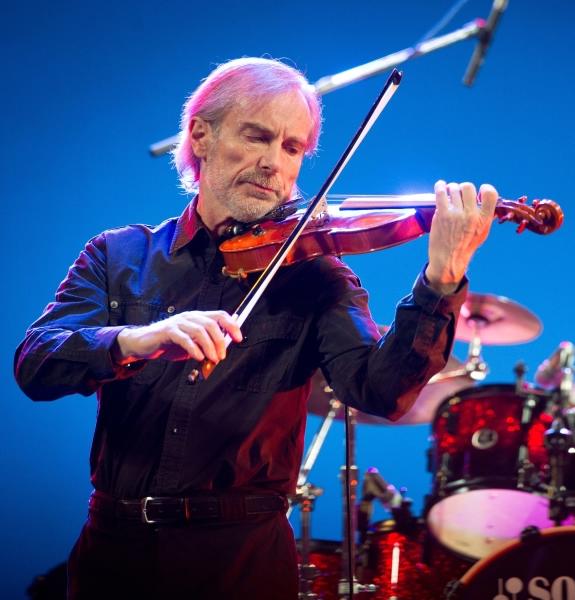 jean luc ponty
jean luc ponty jean luc ponty
jean luc ponty
Born: sep 29, 1942 in Avranches, France.
Jean-Luc Ponty headlined the Zappanale festival in 2010.
Jean-Luc Ponty returned to the Zappanale festival in 2012 together with George
Duke. They performed as The
Brothers Of Invention, playing original compositions and Zappa pieces.
Bio
After studying classical violin at the Paris Conservatory, Jean Luc Ponty turned to jazz in the 60's. Thanks to his revolutionary style he collaborated with some of the best European and American musicians such as Eddy Louiss, Daniel Humair, Niels Henning-Ørsted Pedersen, John Lewis, Lalo Schifrin, and Quincy Jones. He became the first bebop violinist and US jazz magazine “Down Beat” created a violin category for him in its critics' poll, until then violin was in the 'miscellaneous instruments' category. His pioneering work on the electric violin in the 70's attracted the attention of pop and rock musicians, he recorded with Elton John and participated to several tours and legendary recordings with Frank Zappa's Mothers of Invention and John McLaughlin's Mahavishnu Orchestra. In 1975 he founded his own band and became one of the most prominent figures of the jazz-fusion movement in the USA, selling millions of albums that all reached the top of the US charts. Ponty's most recent album “The Atacama Experience” is considered as one if his best and to this day Ponty keeps touring with his band around the world.
Ponty also collaborates on occasional projects such as “The Rite of Strings” with Stanley Clarke and Al Di Meola. In 2011 Ponty joined the mythical American group RETURN TO FOREVER IV with Chick Corea, Stanley Clarke, Lenny White and Frank Gambale for a world tour spanning on 5 continents. Ponty received the 2007 Jazz Trophy in Germany, the medal of Chevalier de la Legion d'Honneur in France in 2009, the 2011 Lifetime Achievement Awards in Ireland, and the Grand Prix of the Sochi Arts Festival in 2012 in Russia from the hands of world famous classical violist and orchestra conductor Yuri Bashmet. In 2012 Ponty performed his music with Orchestre Pasdeloup for his 50-year career celebration at the Theatre du Chatelet in Paris, then again with symphony orchestras in Brazil, Russia and Hungary in 2012 and 2013. In April 2013 Herbie Hancock invited him to perform in Istanbul at “International Jazz Day” for UNESCO. Ponty also founded a new quartet with his daughter, pianist-singer-composer Clara Ponty which performed in France and Germany in 2014. Ponty also performed with the 89 musicians of the Novosibirsk Philharmonic Orcherstra for the Siberian Christmas Festival. In 2014 Ponty recorded an album as an acoustic trio with Stanley Clarke on double bass and Gypsy-French guitarist Bireli Lagrene, which was released on Impulse/Universal in the Fall 2015. Jean Luc recently formed the Anderson Ponty Band with Jon Anderson, co-founder and lead singer of British progressive rock band YES, a CD and DVD was released in 2015 followed by a North American concert tour.
discography
| 1965 great moments in jazz- (organ, synthesizer, violone) | ||||
| 1966 violin summit- violin summit | ||||
| 1966 violin summit- amazing strings | ||||
| 1967 gruntz, george- noon in tunisia | ||||
| wolfgang dauner: free action (1967, lp, ??, mps) - feat. jean-luc ponty |
||||
|
1 |
jean-luc ponty: sunday walk (1967, lp, ger, saba) |
|||
| jean-luc ponty: more than meets the ear
(2) (1968, lp, ??, ??) |
||||
| the jean-luc ponty experience: electric
connection (3) (1969, lp, ??, ??) |
||||
|
8 |
frank
zappa: hot rats
(1969, lp, usa, bizarre) |
|||
| the jean-luc ponty experience with the george
duke trio: s/t (4) (1969, lp, ??, ??) |
||||
| jean-luc ponty: king kong
(5) (1970, lp, usa, world pacific jazz st 20172) – incl. various frank zappa compositions |
||||
|
various artists:
electric monster rock show (1970, lp, ger, liberty) - incl. jean-luc ponty: 'idiot bastard son' (frank zappa) |
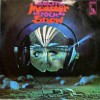 |
|||
| jean-luc ponty experience: open strings
(6) (1972, lp, ??, ??) |
||||
| jean-luc ponty experience: live at montreux 72
(7) (1972, lp, ??, ??) |
||||
| jean-luc ponty: portrait (1972, 2lp, ger, united artists uas 29281/82) = compilation, incl. 'idiot bastard son' (frank zappa) |
||||
|
17 |
the
mothers: over-nite sensation
(1973, lp, usa, discreet) |
|||
|
18 |
frank
zappa: apostrophe (') (1974, lp, usa, discreet) |
|||
| jean-luc
ponty & stephane grappelli: jean-luc ponty & stephane
grappelli (8) (1974, lp, ??, ??) |
||||
| jean-luc ponty: upon the wings of music
(9) (1975, lp, ??, ??) |
||||
| jean-luc
ponty: aurora (10) (1976, lp, ??, ??) |
||||
| jean-luc ponty: canteloupe island (1976, 2lp, usa, blue note la 632-h2) – sampler, including the entire "king kong" album / feat zappa & incl. various frank zappa compositions |
||||
| jean-luc
ponty: imaginary voyage (11) (1976, lp, usa, atl(eu)w50317 |
||||
| jean-luc ponty: jean-luc ponty (1976, lp, argentian, liberty 5062) - incl. ‘king kong’,’twenty small cigars’,’idiot bastard son’ (frank zappa) |
||||
| jean-luc
ponty: enigmatic ocean (12) (1977, lp, usa, atlantic w50409 |
||||
| jean-luc
ponty: cosmic messenger (13) (1978, lp, usa, atl w50505 |
||||
| jean-luc ponty: live
(14) (1979, lp, usa, atl sd19229 |
||||
| jean-luc ponty: a taste for passion
(15) (1979, lp, usa, atl w50666 |
||||
| jean-luc ponty: civilized evil (16) (1980, lp, ??, ??) |
||||
| 33 | frank
zappa: return of the son of
shut up 'n play yer guitar
(1981, lp, usa, barking pumpkin) |
|||
| frank zappa: shut up 'n play yer guitar
- box set (1981, 3lp, eur, cbs) |
||||
| jean-luc ponty: live at donte's (17) (1981, lp, ??, ??) |
||||
| jean-luc ponty: mystical adventures
(18) (1982, lp, usa, atlantic records) |
||||
| jean-luc ponty: individual choice (19) (1983, lp, ??, ??) |
||||
| jean-luc ponty: open mind
(20) (1985, lp, ??, ??) |
||||
| jean-luc
ponty: fables (21) (1985, lp, ??, ??) |
||||
| jean-luc ponty: the gift of time (22) (1987, lp, ??, ??) |
||||
| jean-luc ponty: storytelling (23) (1989, cd, ??, ??) |
||||
| jean-luc
ponty: tchokola (24) (1991, cd, ??, ??) |
||||
| frank zappa: piquantique (1991, cd, usa, rhino foo-eee records r2 70544) |
||||
| jean-luc
ponty / daniel humair / michel portal: la sorcellerie a
travers les ages (25) (1991, cd, ??, ??) |
||||
|
59 |
frank zappa: you can't do that on
stage anymore vol.6 (1992, 2cd, usa, ryko) |
 |
||
| jean-luc ponty: no absolute time (26) (1993, cd, ??, ??) |
||||
| jean-luc ponty: live at chene park (27) (1996, cd, ??, ??) |
||||
|
64 |
frank zappa: the lost episodes
(1996, cd, usa, ryko) |
 |
||
|
jean-luc ponty: the best of the pacific years (2001, cd, usa, pacific jazz) - incl. two frank zappa compositions |
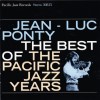 |
|||
| jean-luc ponty:
electric connection / king kong (2004, 2cd, uk, gott discs) - incl. the "king kong" album |
 |
|||
| jean-luc ponty: jean-luc ponty in concert (2004, cd, fr, le chant du monde / harmonia mundi) |
||||
| jean-luc ponty: the acatama experience (2007, cd, ger, koch records) |
||||
|
83 |
frank zappa: one shot deal (2008, cd, usa, zappa records) |
|||
| jean-luc ponty:
electric connection / king kong (2004, 2cd, uk, bgo records) - incl. the "king kong" album |
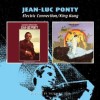 |
|||
| corea, clarke & white: forever (2010, 2cd, japan, ??) - feat. jean-luc ponty |
||||
|
miles davis: miles ! the
definitive miles davis at montreux dvd collection 1973 - 1991 (2011, 10dvd, usa, eagle rock) - feat. tom malone, george duke and jean-luc ponty |
||||
| mads tolling
quartet: celebrating jean-luc ponty - live at yoshi's (2012, cd, usa, madsman records mt-02) - incl. 'king kong' (frank zappa) and various jean-luc ponty compositions |
||||
| return to forever: the mothership returns (2012, 2cd + dvd, usa, ??) - feat. jean-luc ponty |
||||
| various artists:
shark gathering in post industrial bad doberan 2012 (2013, 3dvdr, ger, private release / rr productions) - feat. frank zappa, l.shankar, the ensemble modern & incl. various bands playing zappa compositions |
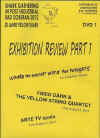 |
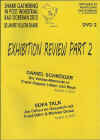 |
||
| jeff lorber
fusion: hacienda (2013, cd, usa, heads up international hui-34476-02) - incl. 'king kong' (frank zappa), feat. jean-luc ponty, vinnie colaiuta and ed mann |
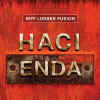 |
|||
|
96 |
frank zappa:
road tapes - finlandia hall, helsinki, finland 23, 24 august 1973 (2013, cd, usa, vaulternative records) |
|||
| anderson
ponty band:
better late than never (2015, cd / dvd, ger, ear music) = jon anderson and jean-luc ponty |
 |
|||
| jean-luc ponty: waving memories - live
in chicago 1975 (2015, cd, uk, hi hat) - feat. tom fowler |
||||
|
104 |
frank zappa:
the crux of the biscuit (2016, cd, usa, zappa records zr20020) |
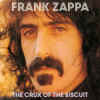
|
||
|
jean-luc ponty: the atlantic years (2018, cd, usa, warner music group) = compilation |
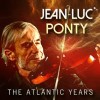 |
|||
semi official releases
| jean-luc ponty:
waving memories - live in chicago 1975 (2017, cd, ??, hi hat) - feat. tom fowler |
||
concerts
|
|
| Ponty at Zappanale 2010. | 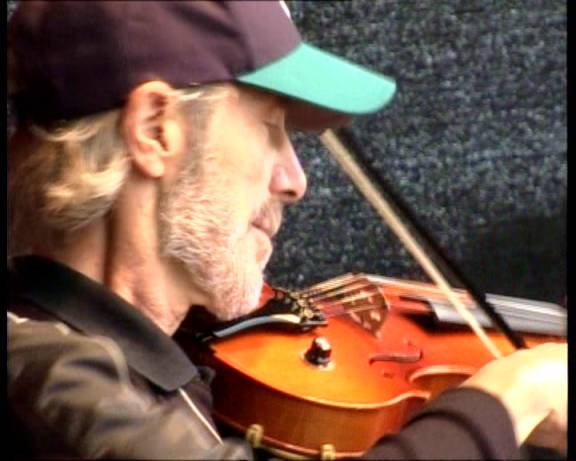 |
|
|
|
picture on the right by Mick Zeuner. |
|
|
picture on the left by Mick Zeuner. |
|
random notes
it has been a long, fascinating odyssey for jean-luc ponty, who started out
as a straight jazz violinist only to become a pioneer of the electric violin in
jazz-rock in the '70s and an inspired manipulator of sequencers and synthesizers
in the '80s. at first merely amplifying his violin in order to be heard, he
switched over to electric violin and augmented it with devices that were
associated with electric guitarists and keyboardists, like echoplex machines,
distortion boxes, phase shifters, and wah-wah pedals. classically trained, with
an unquenchable ability to swing when he wants to, and consumed by a passion for
tight structures and repeating ostinatos, ponty has been able to handle styles
as diverse as swing, bop, free and modal jazz, jazz-rock, world music and even
country, mixing them up at will. starting in 1977, he also pioneered the use of
a five-string electric violin with a low c string. undoubtedly, he rivals
stephane grappelli for the title of the most prominent and influential european
jazz violinist.
ponty's father -- the director of the school of music in avranches and a violin
teacher as well -- got jean-luc started on violin at the age of five, and his
mother tutored him on piano. he left school at 13 in order to practice six hours
a day in the hope of becoming a concert violinist. at 15, he was accepted into
the paris conservatoire, ultimately winning the premier prix at age 17. he
played with the concerts lamoureux orchestra for three years, during which time,
thanks to the influence of grappelli and stuff smith, he became interested in
jazz. oddly enough, ponty began playing jazz first on the clarinet and tenor
sax, waiting until 1962 to apply it to the violin. after a hitch in the french
army (1962- 64), ponty went completely over to the jazz camp, leading quartets
and trios in europe, recording with grappelli, smith and svrend asmussen on
violin summit, and visiting the u.s. for the first time in 1967 at a monterey
jazz festival workshop. enriching himself with diverse american experiences in
1969, ponty recorded with frank zappa, joined the george duke trio, and upon his
return to france, formed the free-jazz jean-luc ponty experience (1970-72)
before settling in the u.s. and rejoining zappa's mothers of invention. he
toured and recorded with the mahavishnu orchestra in 1974-75 and then set out on
his own, compiling a long series of solo albums on atlantic that pulled away
from the more volcanic aspects of fusion toward a more lyrical, european, yet
still exciting extension of mahavishnu's idioms.
in 1983, after his records began to sound increasingly formulaic, ponty switched
gears and recharged his creative batteries on the synthesizer. starting with the
individual choice album, he began constructing attractive revolving patterns of
electronic sounds with the help of sequencers, producing backdrops for his
violin that were elegantly indebted to europop influences. he took this
direction with him when he signed with columbia in 1987, but on 1991's tchokola
album, ponty was on the move again, throwing out the sequencers and recording
with west african musicians who provided him with new ostinato patterns to play
with. -- richard s. ginell
played with john mclaughlin in the mahavishnu orchestra. jean luc-ponty
appears on at least two mahavishnu orchestra albums:
apocalypse (1974)
visions of the emerald
beyond (1975)
both these albums followed the first installment of m.o. which included
j.m., jerry goodman, billy cobham, and jan hammer. these particular later albums
featured a mini-orchestra (strings, horns, woodwinds, etc), which include jean
luc-ponty.
released many jazz albums
he was recently seen playing in a band called "the rites of strings "
(or something like that). the said band also featured al
dimeola on guitar and stanley clarke on bass. there was no drummer in
the band. the band has released a record whith the same name. the record is very
good, theres no electric instruments on it.
karl
kuenning sez:
i was the sound man and production manager for jlp for 2 years in the late 70's.
you have left off darryl sturmmer who played guitar for jl and when on to
genesis (and is still there), and
steve smith who played drums and went on to journey.
the name of the cd with di
meola and clark is "the rites of spring".
ponty's best two albums in my opinion were "enigmatic ocean"
and "a taste for passion", both of which i worked on the tours. his
most popular song was one of his first called "new country" of
the aurora album. let me
know if i can be of any assistance with
jlp or other groups i worked with like patti smith or supertramp.
from: martin
vasko (mjvasko@sprynet.com)
ponty recently toured (again). i
believe he did about 10 dates, including one in san francisco in october.
i wasn't able to go to the show, but have friends back there who told me
about it and as i recall it was listed in pollstar.
about a month ago i picked up his latest cd...which is a live album.
jean-luc ponty: live at chene park, 1996. atlantic
jazz 82964-2
introduction
infinite pursuit
tender memories
between sea and sky
caracas
faith in you
after the storm
the gift of time
eulogy for oscar romero
the amazon forest
the story teller
elephants in love
a journey's end
good cd, very sparse liner notes, not even much in the way of tour photos. i've
only seen him live once, back in about 1980 or so.
'twas awesome.
from:
hadert von dicke (5107@inf.tsu.tomsk.su)
the home page of jose e.mayorga vindas http://www.geocities.com/bourbonstreet/7083
contains his own ponty discography, wherein it is written, that fz played guitar
on ponty's 1969 album cantaloupe
island. i think that is true, because there are listed all the
musicians featured.
from:
teak (shinjin@rocketmail.com)
i heard jlp and fz didn't like each other, don't know about the rumour.
from:
johan lif (johan.lif@swipnet.se)
in a george
duke interview i read in a swedish magazine a few years back, he said
ponty resented doing "stupid things" like standing on one leg on cue.
he considered himself too much of an artist for that kind of thing, and duke
seemed to imply this was the source for his disagreement with zappa.
from:
hyoung-seok kim (black_page@hanmail.net)
i think it's true that fz and jlp didn't like each other much. fz made fun of
jlp's improvisation in trfzb, p.169. : "no matter what the solo was, after
a certain period of time on the road he always ended with the same passage
..."
there fz said, "to a certain extent, alan
zavod, our 1984 keyboard player, would do the same thing." but
we can find that fz is much in his favor, if we compare it with the above cited
sentence about jlp. (for example "in fact, alan really is a great pianist
(and film composer). it's just that... he thought that type of solo was the
appropriate vehicle to project his aura across vast continental areas.")
and jlp said in a interview(le jazz, april 22, 1997) that he and fz
parted on bad terms. "it[touring with fz] was again a very interesting
experience at the beginning, because zappa took out all the very complex
instrumental music that he had stashed in his desk for a long time since it was
too sophisticated for the previous members of the mothers. he had written music
that was very influenced by stravinsky, so he wanted to put together a group of
excellent instrumentalists. but the public lost interest quickly, and he had to
go back to satire and more commercial rock. that wasn't what wanted to do, so i
left after only seven months. he didn't take it well at all and we parted on
very bad terms.
(i think jlp's explain in this interview has not only some truths about fz-jlp
relation but also a prejudice against fz.)
from:
dave lane (chickyraptor@hotmail.com)
there's an official site at http://www.ponty.com/
ponty interview
le jazz (webzine), april 22, 1997
by alain le roux
jean-luc ponty chose to use his virtuosity to assert a new
sound, less "pretty" than that of his elders. riding the wave of
jazz-rock fusion, he was an early proponent of a genre which is now in danger of
being spent. but, after a promising excursion into the world of african rhythms,
he has come back strong with a live album where he gives the full measure of his
talent, inspired by a very hot public. he has been kind enough to answer our
questions. you will find on his site his biography and a complete discography.
le jazz : you were classically trained before going into relatively traditional
jazz, which you played with all the greats of the time, whether they were
violinists or not. then you headed into fusion, even rock. what made you choose
the path you did ?
jean-luc ponty : meetings and chance. when i was playing modern jazz, bebop, in
the 60's, i was invited to play in the united states. the first time was 1967. i
signed a contract with a californian label that had me come back in 1968 and
'69. the producer wanted me to do something different. he was a very open-minded
man, a buddhist before it was trendy. he introduced me to ravi shankar's music,
for example, but he had also signed all the west coast jazz musicians. he
decided he wanted me to meet musicians from outside the jazz world. he
introduced me to frank zappa, for example. little by little, the rock and pop
world started to be aware of me, such as elton john and others.
lj : you recorded in a trio with daniel humair and eddy louis. how did that come
about?
jlp : that was a period when i was playing the clubs in paris. i was only 23
years old and people had noticed me because i was the first modern violinist,
the first to break with the grappelli style. humair, and then others, who were
already established, hired me for a few concerts. then in 1966, when i was
already a professional jazz musician, i began to get jobs of my own in the
clubs. i could hire the groups i wanted. i chose humair on drums, eddy louis on
piano, and guy pederson on bass. pederson was ill and couldn't make it, and
instead of replacing him, i had eddy handle the bass part on the organ, which he
was playing at the time. it worked out fine. we recorded, but at the time no one
was very interested and the record only sold 2,000 copies.
lj : you've played other instruments besides the violin, in particular saxophone
and clarinet. was that to make it easier to get into the jazz world ?
jlp : i learned violin and piano as a child. my mother taught piano and my
father taught violin. he also taught me clarinet, which was technically my third
instrument. when i was doing my classical studies at the conservatoire de paris,
i met some a bunch of young amateur jazz musicians who played once a month at an
engineer’s school. they needed a clarinetist, so i went along for the fun of
it. i didn't really know what jazz was, but that's where i learned. it was just
a hobby at first, once a month, then as i got more and more interested i started
to buy records and to learn about the history of jazz. i had thought jazz was
just some kind of dance music, but modern jazz got me hooked. i taught myself
saxophone, which is easy when you already play clarinet. and then one day,
totally by chance, i had my violin with me because i was on my back from a
classical gig, so i played it. it was a revelation for the audience and for me,
too. for the first time, i realized i could be a jazz violinist. at the time i
didn't know anything about the history of jazz violin. i started to look into it
and discovered grappelli, stuff smith, but no modern violinists. this encouraged
me. once i had managed to win first prize at the conservatoire, i threw myself
more and more into jazz. i listened to the records, hung out at all the clubs,
and began to get work there. i made my first record as a leader when i was 21. i
was hired at the blue note, at the antibes festival. the choice seemed to make
itself. since i was having a lot of success in jazz, i took the risk and gave up
a classical career.
lj : tell us how you met zappa.
jlp : my producer didn't know zappa personally, but he encouraged me to get out
and meet other musicians. zappa was already famous, even among jazz musicians,
for his sophisticated instrumental style. i realized that we were very different
on many levels. for a long time i resisted doing anything other than mainstream
jazz. my producer wanted me to do californian things of the period, even very
commercial things, but that didn't appeal to me at all. but i knew zappa wasn't
into easy music, that he did serious work. so we got together and zappa was
impressed right away by what i was doing with george duke. at the time, george
duke was an unknown young pianist. my producer asked zappa to arrange his music
for my next album under my name. he accepted, and he was ready two or three
weeks later. this was around the time he was recording "hot rats," and
he suggested i go by the studio to see how he worked. three weeks after that we
recorded "king kong," which was really unorthodox for me. thanks to my
classical background, i had no trouble with any of the written music. he had
hired musicians he often used for his own records, jazz musicians, really, from
the los angeles studios. i insisted on using george duke, because we were always
playing together. i wanted to have at least one musician i knew. it was a very
interesting experience. we were curious about each other. he was interested in
jazz and above all in contemporary classical music. he was very interested by my
mix of a classical background and the ability to improvise. that's why he called
me later to ask me to join his group, the mothers of invention, for a tour of
america in 1976. that was the second time we worked together, and it was based
on a misunderstanding. zappa had asked george duke to join the mothers of
invention. but george felt kind of lonely among all those rockers, and he left
zappa to go with cannonball adderley. he passed through paris with cannonball,
and told me a group was being put together in los angeles and his manager wanted
me to be part of it. george told me, "if you accept, i will too." but
i hadn't understood it was to play in zappa's group. in the end i found myself
in los angeles, touring with zappa. it was again a very interesting experience
at the beginning, because zappa took out all the very complex instrumental music
that he had stashed in his desk for a long time since it was too sophisticated
for the previous members of the mothers. he had written music that was very
influenced by stravinsky, so he wanted to put together a group of excellent
instrumentalists. but the public lost interest quickly, and he had to go back to
satire and more commercial rock. that wasn't what i wanted to do, so i left
after only seven months. he didn't take it well at all and we parted on very bad
terms.
lj : another important musical encounter was john mclaughlin, with whom you
played for almost a year and recorded two albums.
jlp : john is english, and he'd read about me in the european music press. we
met in new york, when he had come over from england to play with tony williams.
when he started the first mahavishnu orchestra, he was going to give me a call,
but his manager was against it because i lived in france. but in 1974, for the
second mahavishnu orchestra, i was in the united states. we toured together for
a month, zappa's group and mahavishnu. with john i was much more in my element,
musically, especially since the group was doing purely instrumental music.
lj : was mclaughlin very demanding technically ?
jlp : less so than zappa. he was demanding in that he knew what he wanted, but
it was nothing extraordinary, particularly for me with my classical background.
lj : last year i attended a master class with stéphane grappelli, and when he
was asked where he would situate didier lockwood in relation to himself in
french jazz, he answered that there was another very important french violinist
who shouldn't be overlooked: jean-luc ponty. what has your relationship been
with grappelli? you played with him. you quickly broke from his style.
jlp : when i discovered the history of jazz violin (stuff smith, grappelli, and
so on), i was listening mostly to miles and coltrane. this was in the early
60's. grappelli's style didn't suit the modern style at all, and his career was
at a bit of a low point. the swing era was over, django was dead, bebop had
arrived and swept all before it. bebop was what interested me, and my only
examples were trumpeters, pianists and saxophonists. but i always respected
grappelli, and i defended him against those who couldn't see beyond the new
sounds, because i understood how important the earlier work was. people noticed
me, because i was the crazy young classical violinist who would show up in a
tuxedo with his little amplifier and play electric, and much more aggressively.
grappelli heard about me, and one day django reinhardt's son babik, who i used
to jam with in the clubs, told me grappelli wanted to meet me. he took me along
to a club where i played for him. he told me what i was doing was very original
and he encouraged me to continue. we were friends after that. i never took a
lesson from him, and as a matter of fact he never even talked to me about jazz
violin. it was only later, when i had begun to be well-known, that we were hired
to do a couple of televisions shows together in france, and for the berlin jazz
festival. grappelli sort of took didier lockwood under his wing and helped his
career, but he knows perfectly well there is no such thing as a french school of
jazz violin. that's an error the french jazz press has helped spread, giving the
impression that there's stéphane grappelli and his children, including me. this
is flattering, especially since it makes me seem younger, but it's completely
inaccurate, since the music i was playing was already a break from his style.
lj : can you tell us about technical developments in jazz violin? you are now
playing a six-string instrument.
jlp : in the beginning, in the 1960's, it was very rudimentary. the microphone
was placed on the sound board, it was a contact mike that was placed on the
instrument. it was made in france and the united states for classical guitars
and basses. it didn't pick up all the frequencies, but it amplified me and let
me play with rhythm sections who played as hard as they would behind a
saxophonist or trumpeter. as soon as they saw me with my instrument, drummers
who were used to playing with grappelli would take out the brushes to play
softly. as soon as they felt my energy, they'd switch back to sticks and let go.
i realized that the sound coming out of the amp was not a traditional violin
sound at all, but that the roundness of the low notes, that amplitude which was
like a saxophone, gave me the punch i needed to play this style of music, and so
i stayed with it. in 68-69, when i moved to california, barcus berry, who was
the first to make a really good electric violin, came to see me and gave me his
first models. they were traditional classical violins with a mike in the bridge.
you could also buy the bridge separately and fit it to a traditional violin.
barcus berry also made violins with sound knobs. he also made a baritone violin,
with fatter strings, that played an octave lower. i liked it a lot because it
let me reach a low register on certain tunes. mclaughlin liked it too, because i
could play unison lines with the guitar, or sax, that went lower than i could go
with the violin. it was good, but it meant changing instruments. so barcus
berry, or else vitar, another american manufacturer of the time that has since
gone out of business, had the idea to add a fifth, lower, string. it didn't go
as low as the baritone sax, but it was a sort of combination of the violin and
viola. the first really high-quality electronic violin was made in 1986 by zeta.
two years ago in london, a canadian instrument-maker living in england named
david johnson, who founded violectra, contacted me to show me his instruments.
he makes 4-, 5- and 6-string models. it isn't completely perfected, but i'm
working on it.
lj : and what about midi ?
jlp : i started using midi with zeta's products. the violin mike used by zeta
was invented by a québecois living in san francisco who worked for a small
company that did electronics for guitars and basses. he played violin himself,
so he was interested in the electric violin. he invented a bridge with a
piezo-crystal mike for each string, very high-quality electronics, which meant
there was no more need for a hollow body. it was the first successful solid-body
violin. at first the idea was to connect it to a pre-amplifier to be able to
equalize each string. since each string had an independent signal, zeta was the
first to develop a midi interface for violin.
lj : is response time a problem ?
jlp : it's as good as a guitar. obviously, it works better with
"simple" synthesizer sounds, such as flute. it's a little slower on
low notes. and it doesn't work quite as well for more sophisticated synthesizer
sounds, like attacks in crescendo. it's almost as good as a guitar synthesizer.
lj : in the type of music you've been playing for the last several years, it
seems as if writing plays a greater role than improvisation.
jlp : no, the part of the improvisation is sometimes equal and often greater.
what i write is actually improvised, since i improvise the material first at
home. it depends on the album, but i was recently in an acoustic trio with
stanley clarke and al dimeola, and everyone has brought his own compositions. in
my own productions since the 1980's, i use the synclavier. i record some ideas
immediately, digitally, in the synclavier, then i come back later and add other
layers on top, and so on. of course there are some sections left open for
improvisation.
lj : in the 90's you played with african musicians you met in paris. how did
that come about, and where is it at now ?
jlp : it's still going on. the rhythm section of my current touring group is all
french-speaking africans i chose from among the ones i met in 90-91. it happened
by chance. in 1988, i was touring europe with my american group, and discovered
some superb african musicians in paris. i bought some records and i came back to
paris with my violin looking for them, to see if improvising over their rhythms
would work out. it was, and i made a first record called "tchokola" in
1991. it was different for me, i didn't want to be involved as a composer, just
to improvise over specific african rhythms. it made a big impression on me. i
discovered a great wealth of rhythm and also melody. the next development was to
go back to my western style of writing melodies and harmonies, using african
rhythm sections. i picked musicians who could play jazz, blues or rock.
lj : how do you see the future of jazz violin ? do you have students ?
jlp : i don't have any students. disciples, maybe. for one thing, i don't have
time to teach, and for another, i don't know if i have the gift for it.
lj : have you seen any young people you think are the future of jazz violin ?
jlp : not personally, but i may soon at the musicora trade fair. apparently
there are some young people coming out of the conservatory who have amazing
technique. i hope there will be some of them there. we can even go back to
lockwood. i was interviewed by professionals in a french radio station who told
me, "your style is close to lockwood's, and we wonder who was listening to
whom." i always remember the high level of cultural education in france.
when i listen to my records or hear musicians who been very influential for
their instrument, you can hear it from the beginnings. sometimes i do hear
people with potential, but not mature yet. it's only when we hear someone who
will make a splash at the very beginning that we'll know we're hearing someone
who can bring things farther.
lj : our tradition is to ask all our interviewees to list the three albums they
would take with them to a desert isle. you're no exception !
jlp : salif keita, jan garbarek and a classical violinist, victoria mulova. but
this choice may vary if you ask on another day.